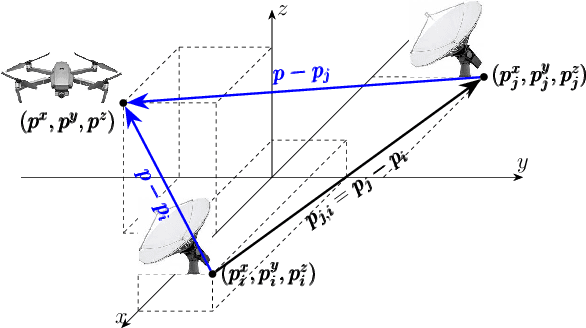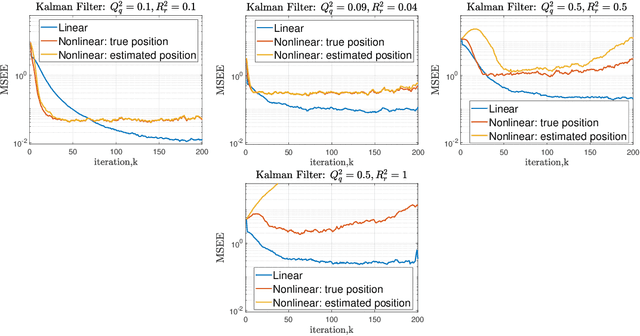Distributed Target Tracking based on Localization with Linear Time-Difference-of-Arrival Measurements: A Delay-Tolerant Networked Estimation Approach
Paper and Code
Dec 22, 2024



This paper considers target tracking based on a beacon signal's time-difference-of-arrival (TDOA) to a group of cooperating sensors. The sensors receive a reflected signal from the target where the time-of-arrival (TOA) renders the distance information. The existing approaches include: (i) classic centralized solutions which gather and process the target data at a central unit, (ii) distributed solutions which assume that the target data is observable in the dense neighborhood of each sensor (to be filtered locally), and (iii) double time-scale distributed methods with high rates of communication/consensus over the network. This work, in order to reduce the network connectivity in (i)-(ii) and communication rate in (iii), proposes a distributed single time-scale technique, which can also handle heterogeneous constant data-exchange delays over the static sensor network. This work assumes only distributed observability (in contrast to local observability in some existing works categorized in (ii)), i.e., the target is observable globally over a (strongly) connected network. The (strong) connectivity further allows for survivable network and $q$-redundant observer design. Each sensor locally shares information and processes the received data in its immediate neighborhood via local linear-matrix-inequalities (LMI) feedback gains to ensure tracking error stability. The same gain matrix works in the presence of heterogeneous delays with no need of redesigning algorithms. Since most existing distributed estimation scenarios are linear (based on consensus), many works use linearization of the existing nonlinear TDOA measurement models where the output matrix is a function of the target position.
 Add to Chrome
Add to Chrome Add to Firefox
Add to Firefox Add to Edge
Add to Edge